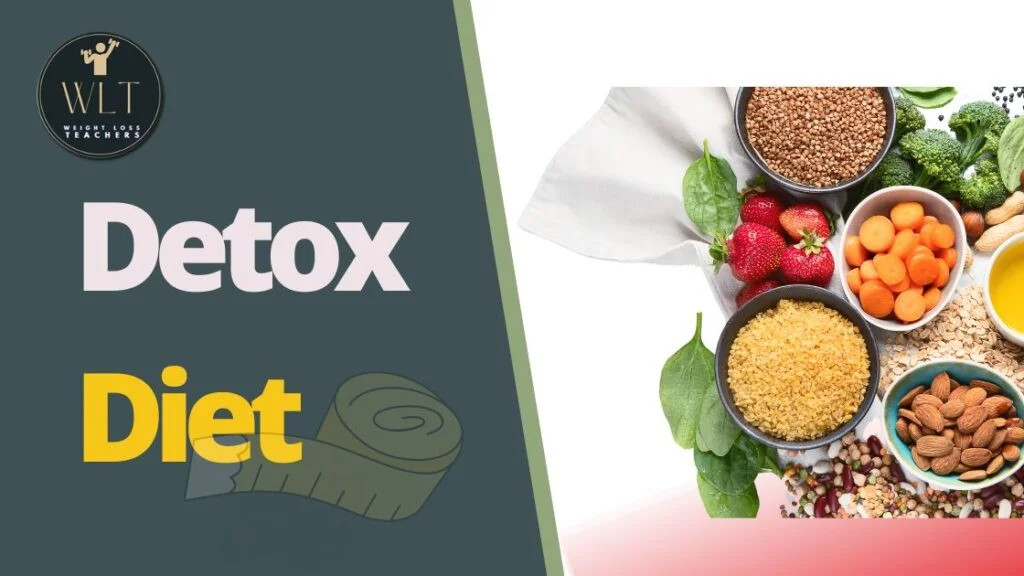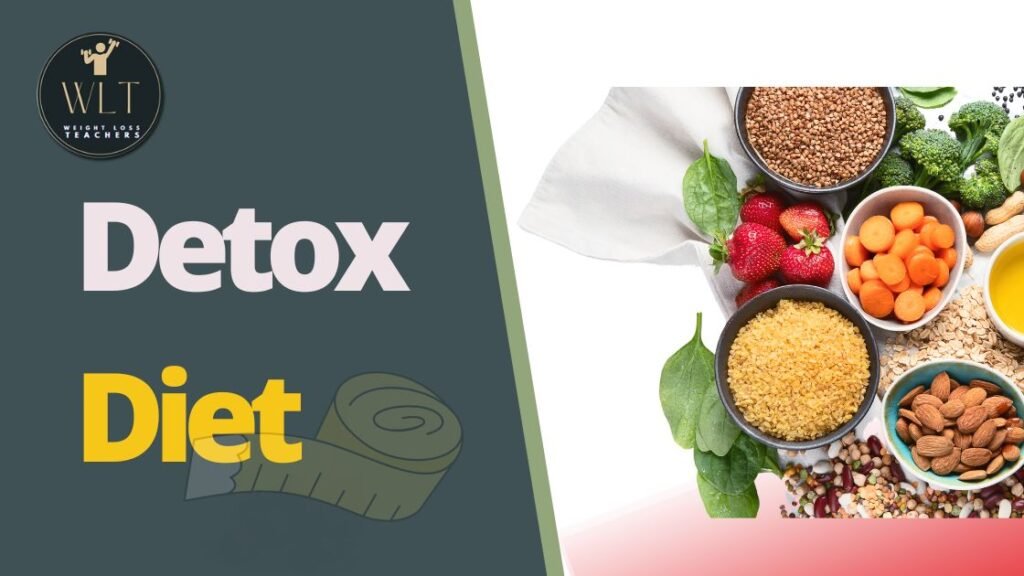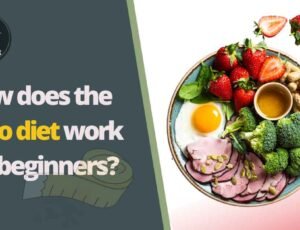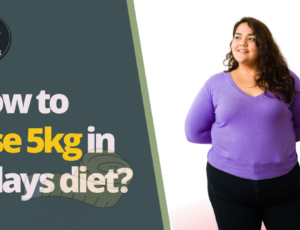
Detox Diet

In today’s world, we are surrounded by pollution, chemicals, and unhealthy food choices that can take a toll on our bodies.
Table of Contents
Introduction
A detox diet is a popular trend that promises to cleanse our bodies of these toxins and improve overall health. But what exactly is a detox diet? Is it effective, safe, and sustainable?
In this comprehensive guide, we will answer all your questions and provide you with everything you need to know about detox diets.
What is a Detox Diet?

A detox diet is a dietary plan that aims to remove toxins from the body, improve digestion, and enhance overall health. The idea behind a detox diet is that by eliminating certain foods and beverages and increasing the intake of specific nutrients, the body can eliminate harmful substances and promote optimal health.
Detox diets typically involve a short-term, restrictive diet plan that involves consuming mostly liquids, such as juices, smoothies, and soups, and avoiding solid foods. Some detox diets also recommend supplements, herbs, and other methods, such as enemas or colon cleansing, to support the detoxification process.
Detox diets come in various forms, including juice cleanses, water fasts, raw food diets, and master cleanses. Some detox diets focus on eliminating specific foods, such as sugar, dairy, or gluten, while others restrict all solid foods and focus on liquid consumption.
While detox diets can be helpful in some cases, they are not recommended as a long-term dietary plan, and they can be harmful if not done correctly. It’s important to consult a healthcare professional before starting a detox diet, especially if you have any underlying health conditions or take any medications.
Why Do People Do Detox Diets?

Detox diets have gained popularity in recent years, with people turning to them for a variety of reasons. These diets typically involve a period of consuming specific foods or drinks that are believed to help the body eliminate toxins and promote overall health. While there is some debate in the medical community about the effectiveness of detox diets, many individuals are drawn to them for the following reasons:
- Eliminating Toxins: One of the primary motivations for embarking on a detox diet is to rid the body of accumulated toxins. Over time, our bodies can accumulate various harmful substances, including pesticides, heavy metals, and environmental pollutants, which may have adverse effects on health. Detox diets are thought to support the body’s natural detoxification processes, primarily through the liver and kidneys, helping to eliminate these toxins.
- Digestive Health: Detox diets often involve avoiding processed foods, sugars, and unhealthy fats, which can be hard on the digestive system. By giving the digestive system a break and providing it with nutrient-dense foods, individuals hope to improve their digestive health. Many people experience reduced bloating, gas, and indigestion while on a detox diet.
- Boosting Energy Levels: Another common reason for pursuing a detox diet is the desire to increase energy levels. Unhealthy dietary choices, such as excessive consumption of sugary snacks and caffeine, can lead to energy crashes and fatigue. Detox diets replace these energy-draining foods with nutritious options, supplying the body with essential vitamins and minerals. As a result, participants often report feeling more energized and alert.
- Weight Loss: Weight loss is a goal for many individuals, and detox diets are often seen as a means to achieve this. By reducing calorie intake, promoting fat burning, and encouraging healthy eating habits, detox diets can lead to temporary weight loss. However, it’s essential to note that the initial weight loss during a detox diet is often due to water and glycogen loss, rather than fat loss.
- Improving Overall Health: Detox diets are perceived as a way to enhance overall health and well-being. By reducing inflammation, supporting the immune system, and potentially reducing the risk of chronic diseases, detox diets aim to provide a holistic health boost. Some proponents believe that a clean body is better equipped to fend off illnesses and maintain long-term health.
It’s crucial to approach detox diets with caution and under the guidance of a healthcare professional, as there are potential risks associated with extreme detox regimens. While short-term detox diets may offer benefits such as improved energy and digestion, they are not a sustainable long-term solution. Healthy eating patterns and lifestyle choices are more effective in maintaining health and well-being over the long haul.
Are Detox Diets Effective?

The effectiveness of detox diets is a subject of debate among healthcare professionals. Some studies suggest that detox diets can be effective in eliminating toxins from the body, improving digestion, and promoting weight loss. However, other studies have found that detox diets may not be effective in achieving these goals and may even be harmful.
One of the main criticisms of detox diets is that they are not scientifically proven to be effective. There is limited research on the effectiveness of detox diets, and most studies have been small and of poor quality. Additionally, the human body already has a natural detoxification system that includes the liver, kidneys, and digestive system. The body is capable of eliminating toxins on its own without the need for a restrictive diet.
Furthermore, some detox diets can be harmful if not done correctly. Eliminating solid foods and consuming only liquids can lead to nutrient deficiencies, dehydration, and electrolyte imbalances. Some detox diets can also cause gastrointestinal problems, such as bloating, gas, and diarrhea.
Detox diets can also be challenging to follow, especially for long periods. The restrictive nature of these diets can lead to feelings of deprivation, low energy, and irritability, which can make it difficult to stick to the diet plan.
Types of Detox Diets

Detox diets come in various forms, each with its unique set of rules and restrictions designed to cleanse the body and promote better health. While these diets have gained popularity, it’s important to approach them with caution and consider individual needs and health goals. Here are some of the most popular types of detox diets:
- Juice Cleanse: The juice cleanse is a widely recognized detox diet that involves consuming only freshly squeezed fruit and vegetable juices for a set period, typically ranging from a few days to a week. These juices are rich in vitamins, minerals, and antioxidants, and proponents believe they help flush out toxins while providing essential nutrients. Juice cleanses can be beneficial for those seeking a quick nutrient boost, but they may lack sufficient protein and fiber.
- Water Fast: A water fast is an extreme detox diet that entails consuming only water for a specified duration, which can vary from a few days to several weeks. It’s essential to emphasize that water fasting should be undertaken only under strict medical supervision, as it carries potential health risks. While proponents claim that water fasting can help detoxify the body and reset metabolic processes, it’s not suitable for everyone and can lead to severe nutrient deficiencies.
- Raw Food Diet: Advocates of the raw food diet believe that cooking destroys natural enzymes and nutrients in food, potentially leading to health issues. This diet consists of consuming raw, uncooked fruits, vegetables, nuts, and seeds. While it emphasizes whole, plant-based foods, it can be challenging to follow long-term and may lead to nutritional imbalances, particularly in terms of protein intake and vitamin B12 deficiency.
- Master Cleanse (Lemonade Diet): The master cleanse, also known as the lemonade diet, is a short-term detox diet that typically lasts a few days to a week. It involves drinking a specially prepared lemonade made from water, lemon juice, maple syrup, and cayenne pepper. The master cleanse is believed to promote detoxification and weight loss, but it lacks essential nutrients and may not be suitable for extended use.
Elimination Diet: Unlike other detox diets, the elimination diet doesn’t focus on extreme fasting or specific concoctions. Instead, it involves eliminating certain foods or food groups, such as sugar, dairy, gluten, or processed foods, from the diet for a specified period. The goal is to identify food sensitivities or intolerances by reintroducing eliminated foods one at a time. Elimination diets can be valuable for individuals struggling with digestive issues or allergies and aim to pinpoint the dietary triggers of their symptoms.
Disclaimer: The information provided in this article is for educational purposes only and should not be considered as a substitute for medical advice. Consult a healthcare professional before implementing any home remedies or making significant changes to your lifestyle.
How to Do a Detox Diet Safely

Embarking on a detox diet can be a personal choice, but it’s crucial to prioritize safety and overall well-being throughout the process. Here are some essential tips to help you undertake a detox diet safely:
- Consult a Healthcare Professional: Before starting any detox diet, it is paramount to consult with a healthcare professional, such as your doctor or a registered dietitian. They can evaluate your individual health status, medication use, and any underlying medical conditions to ensure that a detox diet is safe and appropriate for you. This step is especially important if you have chronic health issues or are on medications.
- Choose a Reputable Program: If you opt for a detox diet program, research and select one that is reputable and science-backed. Be cautious of programs that make extravagant claims or guarantee rapid weight loss, as these often lack scientific credibility. A trustworthy program should have a clear, evidence-based rationale for its approach.
- Stay Hydrated: Adequate hydration is essential during a detox diet. Drinking plenty of water and other hydrating fluids helps prevent dehydration, supports the body’s natural detoxification processes, and helps flush out toxins. Herbal teas, infused water, and low-sodium vegetable broths can also contribute to hydration.
- Choose Nutrient-Dense Foods: If you are undertaking a detox diet that involves juices, smoothies, or liquid-based meals, opt for nutrient-dense options. Freshly squeezed fruit and vegetable juices, as well as soups made from whole ingredients, can provide essential vitamins, minerals, and antioxidants. Ensure that your intake contains a variety of colors and types of produce for a well-rounded nutrient profile.
- Listen to Your Body: Pay close attention to how your body responds during the detox diet. If you experience adverse symptoms like fatigue, dizziness, nausea, or extreme hunger, consider discontinuing the diet and consult your healthcare professional. Everyone’s body is different, and what works for one person may not be suitable for another.
- Ease Into and Out of the Detox: To minimize the shock to your system, gradually transition into and out of the detox diet. If you are reducing solid food intake, start by gradually reducing processed foods, sugars, and unhealthy fats in the days leading up to the detox. After completing the detox, slowly reintroduce solid foods to avoid digestive discomfort.
- Limit the Duration: Detox diets are not intended for long-term use. They are typically designed for short-term cleansing and should be limited to a few days to a week. After completing the detox, return to a balanced and nutritious diet that includes a variety of food groups to meet your daily nutritional needs.
Foods to Include and Avoid in a Detox Diet

A well-planned detox diet involves making thoughtful choices about the foods you include and those you avoid to support your body’s natural cleansing processes. Here are detailed guidelines on foods to include and avoid in a detox diet:
7.1 Foods to Include:
- Water: Staying adequately hydrated is fundamental during a detox diet. Water supports all bodily functions, including the elimination of waste and toxins. Aim to drink at least 8-10 glasses of water daily.
- Fresh Fruits and Vegetables: Load up on a wide variety of fresh, preferably organic, fruits and vegetables. They are rich in vitamins, minerals, and antioxidants that can help neutralize harmful compounds in the body. Dark leafy greens, berries, citrus fruits, and cruciferous vegetables like broccoli and cauliflower are excellent choices.
- Whole Grains: Opt for whole grains like brown rice, quinoa, oats, and whole wheat products. These grains are high in fiber, which aids digestion and helps maintain stable blood sugar levels. Fiber also promotes the removal of waste and toxins from the body.
- Lean Protein: Include lean protein sources in your detox diet, such as skinless poultry, fish, tofu, and legumes like lentils and chickpeas. Protein is crucial for muscle repair and maintaining metabolic health. It’s advisable to choose plant-based proteins or lean animal proteins to reduce the intake of saturated fats.
- Healthy Fats: Incorporate healthy fats from sources like avocados, nuts, seeds, and olive oil. These fats are essential for brain function, hormone production, and overall health. Omega-3 fatty acids, found in fatty fish like salmon and walnuts, have anti-inflammatory properties.
- Herbal Teas: Herbal teas like green tea, chamomile, and peppermint can aid in digestion, reduce inflammation, and provide a soothing beverage option during your detox diet. Green tea, in particular, contains antioxidants known as catechins, which have potential detoxifying effects.
7.2 Foods to Avoid:
- Processed Foods: Eliminate processed foods that are laden with sugar, salt, unhealthy fats, and artificial additives. These can contribute to inflammation, disrupt gut health, and hinder the detoxification process.
- Alcohol: Alcohol places an additional burden on the liver, which is a central organ in detoxification. Abstain from alcohol consumption during your detox diet to allow your liver to focus on processing toxins more efficiently.
- Caffeine: Limit or completely avoid caffeine-containing beverages like coffee, as caffeine can disrupt sleep patterns and contribute to dehydration. Herbal teas can be a suitable caffeine-free alternative.
- Sugar: Steer clear of sugary foods and beverages. Excessive sugar intake can lead to spikes in blood sugar levels and inflammation. Opt for natural sweeteners like honey or stevia if needed, but in moderation.
- Dairy: Some individuals may have sensitivities to dairy products, which can lead to digestive discomfort. During a detox diet, it’s advisable to exclude dairy items and opt for dairy-free alternatives like almond or soy milk if neces
FAQs (Frequently Asked Questions)
Q1. What is a Detox Diet?
A1. A detox diet is a dietary plan designed to remove toxins from the body, enhance digestion, and improve overall health. It typically involves a short-term, restrictive diet with an emphasis on liquids and specific nutrients.
Q2. Why Do People Choose Detox Diets?
A2. People opt for detox diets for reasons such as eliminating toxins, improving digestion, boosting energy levels, promoting weight loss, and enhancing overall health. These diets are seen as a way to reset the body and encourage healthier habits.
Q3. Are Detox Diets Effective?
A3. The effectiveness of detox diets is a topic of debate. Some studies suggest benefits, but overall scientific evidence is limited. Detox diets may offer short-term improvements, but their long-term effectiveness is questionable.
Q4. Are Detox Diets Safe?
A4. Detox diets can be safe when done correctly and under professional guidance. However, extreme detox regimens, especially without proper supervision, can be harmful and lead to nutrient deficiencies, dehydration, and other health issues.
Q5. What Are the Different Types of Detox Diets?
A5. Detox diets come in various forms, including juice cleanses, water fasts, raw food diets, master cleanses, and elimination diets. Each type has its own set of rules and restrictions.
Q6. Should I Consult a Healthcare Professional Before Starting a Detox Diet?
A6. Yes, it’s highly advisable to consult with a healthcare professional, such as a doctor or registered dietitian, before starting a detox diet. They can assess your individual health status and provide guidance to ensure it’s safe and appropriate for you.
Q7. How Long Should a Detox Diet Last?
A7. Detox diets are generally meant to be short-term, lasting from a few days to a week. Prolonged detox diets can lead to nutritional imbalances and other health issues.
Q8. What Foods Should I Include in a Detox Diet?
A8. A detox diet should include water, fresh fruits and vegetables, whole grains, lean protein, healthy fats, and herbal teas. These foods support detoxification and overall health.
Q9. What Foods Should I Avoid in a Detox Diet?
A9. Avoid processed foods, alcohol, caffeine, excessive sugar, and dairy products during a detox diet. These items can hinder the detoxification process and contribute to inflammation.
Q10. Can Detox Diets Be Sustained Long-Term?
A10. Detox diets are not intended for long-term use. They serve as short-term cleanses and should be followed by a return to a balanced and nutritious diet to maintain overall well-being.
Conclusion
Detox diets have become increasingly popular in recent years, but their effectiveness and safety are still up for debate. While some studies suggest that detox diets can improve liver function, reduce inflammation, and promote weight loss, others have found no significant benefits and even potential risks.
If you’re considering a detox diet, it’s essential to do it safely and under the guidance of a healthcare professional. Choose a reputable program, stay hydrated, choose nutrient-dense foods, listen to your body, and don’t prolong the detox. Remember, detox diets are not meant to be long-term dietary plans and should be followed for a short period of time.
Finally, it’s important to remember that our bodies have natural detoxification systems in place that work to eliminate toxins and waste products. Eating a healthy, balanced diet, drinking plenty of water, exercising regularly, and getting enough sleep can all support the body’s natural detoxification process and promote overall health and wellbeing.






